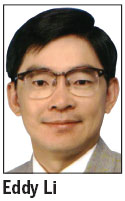Wealth in waste: Incineration to generate electric power
Updated: 2013-08-16 06:48
By Eddy Li(HK Edition)
|
|||||||
The landfill extension issue is unprecedentedly severe for Hong Kong at the moment. The heated public debate, however, was put to rest after the adjournment of the Legislative Council (LegCo) discussion on the government's funding proposal for the Tuen Mun and Ta Kwu Ling landfill extension in early July. The government indicated that they will table the proposal and consult LegCo when it resumes business in autumn after the summer recess. In the meantime, the related officers will perform some on-the-spot investigations, in order to find the balancing point to carry out the extension after taking much advice and suggestions. Nevertheless, it is still hard to say for now whether the funding proposal will be passed by the Finance Committee.
It is an inevitable phenomenon that the amount of the waste is getting larger and larger through population growth and economic development. Statistics show that the current everyday domestic waste per capita in Hong Kong is 1.28 kg, tens of percent more than Tokyo, Seoul and Taipei. Moreover, this figure is only limited to Hong Kong residents; if we add the extra waste produced by the 50 million tourists a year, the total amount is astonishing.

The adjournment of the proposal can only exacerbate the waste disaster. We should take prompt action to fix the issue, or the three existing landfills will be exhausted one by one by 2020 if waste levels continue to increase at current levels. By then, the city will have to deal with almost 20,000 tons of waste every day.
I do believe that we need to find long-term measures to solving the problem rather than relying on landfill extension only. Otherwise, even with the extended landfill and improved waste reduction, the problem will recur in the future given that Hong Kong is a small but densely populated city. Therefore, the best way is to adopt a sustainable mode for waste disposal - in other words, we have to make better use of the waste and change it into something of commercial value, turning waste into wealth.
At present, there are already companies in the recycling industry advocating recycling materials and installing food waste decomposing systems to recycle leftovers into compost, but the effect is limited given that the recycled amount is not proportional to the waste produced every day. Actually, the most effective way to clear the waste is incineration, which can generate electric power in the process. By doing this, we can turn waste into energy resources and meanwhile conform to environmental protection principles.
There are existing cases of electric power generation by incineration: in Taiwan, the waste was being used to generate power more than two decades ago, and now, there are 26 (24 are in use) refuse incinerator plants on the island, incinerating 24,650 tons of waste per day and nearly 9 million tons last year, earning NT$4.6 billion ($153 million); the situation in Norway is more optimistic, where the incinerator plants are even facing "waste shortage" in the country, so that they need to import waste from other countries, so as to increase the generating capacity.
Not long ago, a private business group in Hong Kong spent HK$9.8 billion launching a takeover bid for the biggest energy-from-waste firm in the Netherlands. The firm provides electric power, steam and heating, and its annual net profit reached HK$400 million to HK$500 million - a considerable rate of return. Although Hong Kong people have not attached great importance to this option in the past and the whole industry has not yet been formed, this is an evident case that generating power from waste incineration is a promising business. So it is high time that we considered and studied carefully this solution, to avoid "wasting" the waste we now produce every day.
The author is the vice-president of the Chinese Manufacturers' Association of Hong Kong.
(HK Edition 08/16/2013 page9)